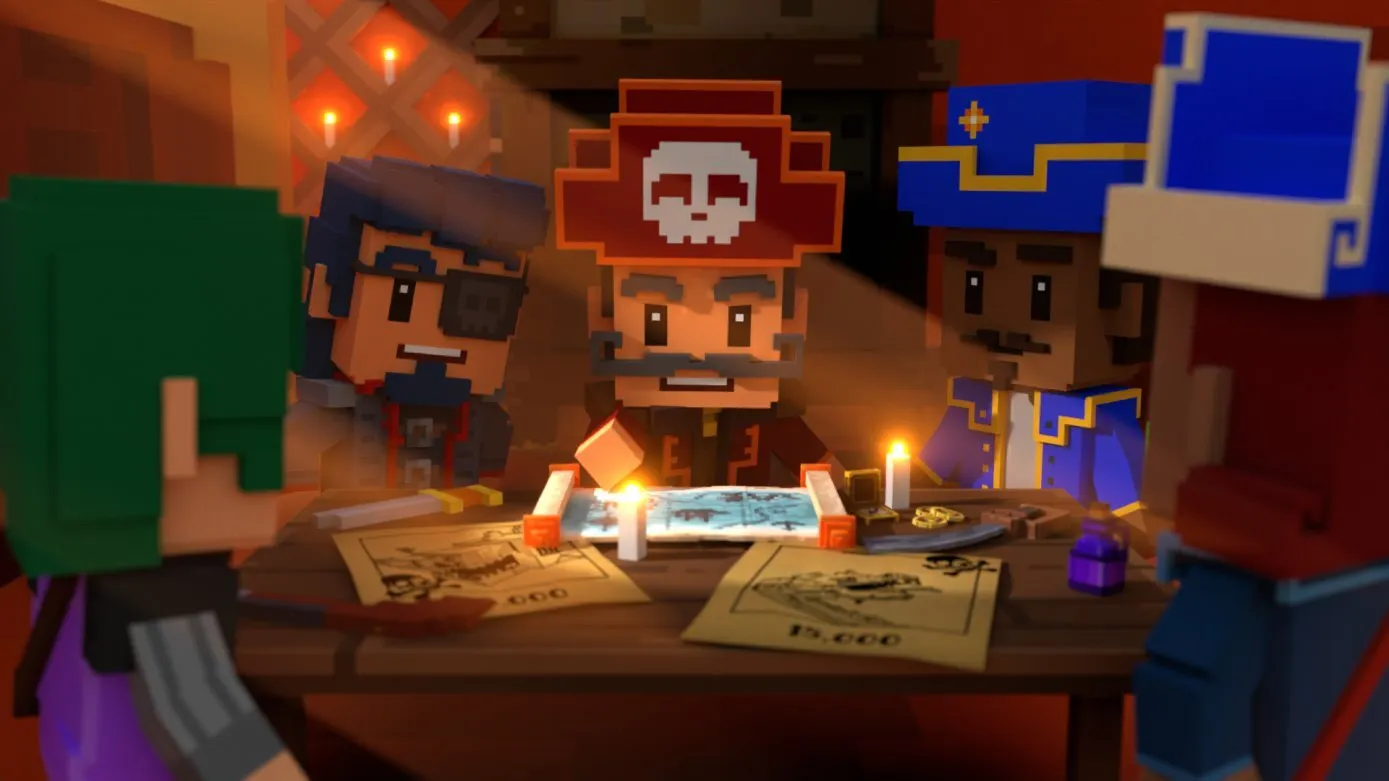Ahoy, Arbitrum!
Pirate Nation is a role-playing game (RPG) with a boxy voxel-art aesthetic and dynamic NFTs, and is almost entirely on-chain. But while many games announce that they’re building on the Ethereum sidechain Polygon, studio Proof of Play is instead setting sail for new shores with Pirate Nation.
Proof of Play co-founder and CEO Amitt Mahajan—a veteran of Zynga and the smash casual game Farmville—told Decrypt that Pirate Nation needed to move to a more affordable and scalable platform. Despite what some might think about scaling networks, he said, those Polygon transaction fees really do add up.
Since launching the game in December 2022, Mahajan has seen increased fees on the backend as more players get into the game. While some Pirate Nation players buy NFTs on the Ethereum mainnet before opening the game, any “transactions” or backend activities where players acquire items within the game do not force the user to sign with their wallet or pay gas fees.
It's a move to simplify the game’s Web3 experience, making it as seamless and immersive as possible without the friction and cumbersome nature of engaging with smart contracts—which hold the code that powers autonomous Web3 apps and games. It has already become the norm for many blockchain games.
While some studios opt for pre-authorization methods so that users only have to sign once, other studios instead eat the cost of in-game transactions. Either way, someone has to pay those fees in-game for users to engage with smart contracts—and Proof of Play has been covering those in-game gas fees itself to spare users the hassle.
“As more people have migrated to Polygon, we just started to run into scaling issues with the Polygon chain,” Mahajan told Decrypt. “We were paying between $3,000 and $4,000 a day on gas. And so it just got untenable. It was preventing us from being able to scale the game.”
Mahajan said that many options were explored for Pirate Nation, including migrating away from Ethereum entirely or considering a private network—like a Polygon Supernet or an Avalanche Subnet. However, it chose Arbitrum Nova, another Ethereum scaling solution (a layer-2 network) for the game, because it offered support for Pirate Nation’s technical features like OpenZeppelin security products and nodes already implemented into the game.
While there's a lot of buzz around zero-knowledge (ZK) scaling networks, including the newly-launched Polygon zkEVM network and the upcoming Immutable zkEVM gaming network based on Polygon's own, Mahajan admitted that he doesn't want to take a risk on something that may not yet be fully optimized.
“There’s a lot of hype around the ZK stuff,” he said. “We don’t want to be the first adopters of these technologies. We’re just trying to provide a great experience to users. So we want to see proof of concepts, examples of projects that are running [in] production before we’re willing to move over.”
Decentralized Focus
While Pirate Nation’s team is cautious about anchoring on new shores, Proof of Play has developed its own tech solution called “mirroring” for the move to Arbitrum Nova.
Instead of “bridging” assets through a process that effectively mints a new version of the NFT on the target chain, Pirate Nation has its smart contracts set up so that users will see the assets they buy on the Ethereum mainnet automatically appear in their game on Arbitrum Nova.
In other words, as the name suggests, it mirrors the game assets on both chains. And since Pirate Nation is nearly entirely on-chain and operated via automated smart contracts, almost every aspect of the game is stored on a blockchain.
“Most Web3 games that are out there, they use NFTs and tokens as the basis for in-game items and currency. But the majority of gameplay still happens in a centralized fashion,” Mahajan said.
He likened most Web3 games to a game of chess, where the pieces are NFTs.
“But if you actually want to play the game chess, you have to still go to someone's website and connect to their servers. And if for some reason that company goes away, your chess pieces are now useless, because you don't have the board or the game rules to go along with it,” Mahajan said of most Web3 games.
Pirate Nation is currently building an on-chain game engine, and also has what Mahajan calls the “equivalent” of a game server on-chain. Numerous smart contracts operate the game’s mechanics as well, meaning that the only major element of the game that isn’t currently stored on-chain is its art, which is stored on IPFS. And compressing and moving the art on-chain wouldn’t be entirely out of the question, Mahajan added.
As for whether users will notice any changes with Pirate Nation’s migration, Mahajan believes that’s unlikely: “From a user’s perspective, it’s going to be seamless—and, in fact, less friction.”
Daily Debrief Newsletter
Start every day with the top news stories right now, plus original features, a podcast, videos and more.

